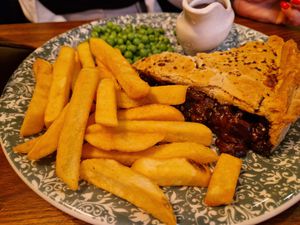Third of curry houses may not reopen following lockdown
Up to 30 per cent of UK Indian restaurants may struggle to reopen after the Covid-19 pandemic.

More than 2,000 curry houses and 30,000 jobs are at risk.
The traditional cheap curry night out is over, certainly in the medium term, because venues will no longer be able to pack diners in and to survive the remaining restaurants will need to raise prices to a realistic level to offset the fall in revenues from fewer diners.
Shahab Uddin, who owns Streetly Balti in the West Midlands, said he reckoned as many as 30 per cent of big venues could fall victim to the pandemic if they are no longer able to pack their diners in.
The impact could actually be worse,according to Professor Monder Ram, Director of the Centre for Research in Ethnic Minority Entrepreneurship at Aston Business School, unless venues invested and raised prices to realistic levels.
It is estimated that up up to 2,500 out of around 8,500 Indian restaurants might never reopen.
Mr Uddin, who has been in the curry house trade since 1993, explained that Streetly Balti had accessed the Government’s furlough support and a £10,000 local council grant, and that his and some other curry houses had developed takeaway services to tick over in the short term, but he warned that damage to the wider industry had been more severe because many operators had no knowledge of assistance available, and grants were not enough to tide larger venues over.
Mr Uddin added: “My restaurant is quite small – we’ve built our reputation on being small and cosy. After Covid-19 I don’t think cosy and small is going to work. Until we’re allowed to open the restaurant, I’m going to stick to takeaways, and if I have any customers who really want to come to the restaurant maybe just allow one or two tables. I wouldn’t risk taking any more than that.”
Professor Ram said he was not surprised at Mr Uddin’s comments because he felt the curry house sector was facing dire challenges even before Covid-19.
He said that many curry house owners had not tried to access Government assistance because they often shied away from what they saw as formal public sector institutions, but he insisted there was a possible future if more operators upgraded services and prices.
“Covid-19 is providing paradoxically a brilliant opportunity to reflect on the business models that traditionally Bangladeshi caterers have used. There has been very little investment in new tech and very little in skills. Organisations like my own need to get much closer to people like Shahab and collaboratively develop solutions might follow.
“The traditional model in this sector has always been low tech, low wages and low prices. This is unlikely to survive in the future and major changes will have to be introduced. Shahab and others are saying we need to explore radical new options like investing significantly in training and taking IT/digital ways of marketing seriously.”





